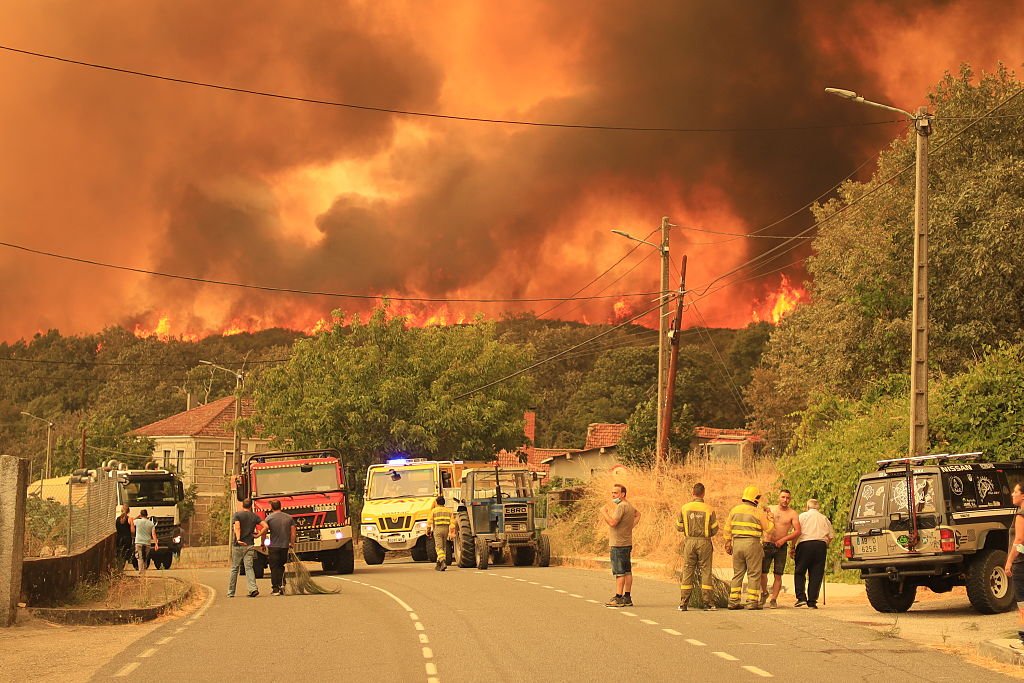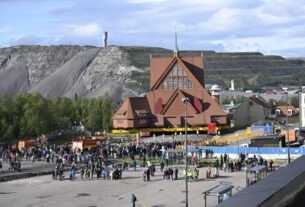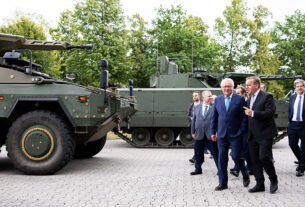María Mendiluce is CEO of the We Mean Business Coalition of seven leading non-profit sustainability organisations. She is expert in sustainable development, energy and climate action, with more than 25 years’ experience in business, government and NGOs.
The largest-ever deployment of the EU Civil Protection Mechanism is now battling wildfires in Spain. It is a striking display of European solidarity – a supranational force activated swiftly across borders, delivering tangible support at speed. But it also exposes a stark gap: While Europe can coordinate across countries, many member states are still failing to coordinate within their own.
In Spain, fires have swept across regions governed by different parties – Galicia, Castile and León, Extremadura – indifferent to political control. As flames closed roads and railways, Prime Minister Pedro Sánchez proposed something rare in European democracies: a cross-party climate pact. A call to depoliticise the climate emergency and build a national framework for action rooted in science, not party platforms.
Critics argue Sanchez is using the pact to mask mismanagement and to occupy more political space than necessary. Regional leaders, including conservatives, have at times shown more openness than their national counterparts.
Sánchez is not just responding to a summer of crisis. He is pointing toward a political reality that other European leaders will soon confront: the convergence of adaptation and mitigation as a shared, and increasingly inescapable, responsibility.
For decades, climate mitigation – the push to reduce emissions – was seen as the domain of the progressive left and centre-right. Adaptation – preparing for floods, droughts, fires – was more pragmatic and less politically charged. That division is dissolving. The rising frequency and cost of climate impacts may soon draw even reluctant actors into the climate arena – not because of ideology, but because of exposure.
When the fires arrive or the power fails, climate denial doesn’t survive contact with lived reality. In Spain this month, while the EU delivered firefighting aircraft and logistical support, a politically neutral package of domestic reforms – the so-called “anti-blackout decree” – was blocked in parliament. Designed to modernise the grid, accelerate electrification, and unlock clean energy investment, it fell victim to short-term politics.
The infrastructure needed for decarbonisation is also needed for resilience. Local solar, smart grids, decentralised storage, demand flexibility: these are tools for both emissions reduction and climate response. The policy files may differ, but the outcome – energy systems that survive a crisis and cut emissions – is the same.
Spain is not an outlier. Europe is the world’s fastest-warming continent. Greece, France, and the Balkans have all faced escalating fire seasons. Floods in Italy and Germany have tested national response systems. And across the continent, voters are asking not only what governments plan to do, but whether their political systems are capable of doing it at all.
The EU deserves credit for building a framework that works. The Civil Protection Mechanism – activated 16 times during the current fire season – is a rare example of EU crisis infrastructure that is fast, effective and respected. But what works at the supranational level must now be replicated nationally. Sánchez’s proposal is one model: a science-based, cross-party commitment to continuity of climate governance – not unanimity, but durable direction.
Other countries may need to explore similar mechanisms. Political volatility, coalition fragmentation and election cycles all weaken long-term planning. But climate does not work on five-year timelines. If public trust is to be maintained, governments must show they can act – not just during a wildfire, but before the grid fails, the crops fail or the water runs out.
This is not just a technical challenge. It is a democratic one. The governance structures that evolved for deliberation and dissent must now accommodate consistency and coordination. That will mean new institutional tools: cross-party climate frameworks, legislative safeguards for long-term plans, stronger alignment between regional, national and EU levels. In some countries, it may also mean constitutional commitments – climate as a shared mandate.
Spain’s fires are a warning. They are also an invitation – to rethink how we govern under climate pressure, and how we prepare not only for more intense weather, but for more complex politics.
The first is inevitable. The second is a choice. Adaptation may yet be the political equaliser Europe didn’t see coming.





